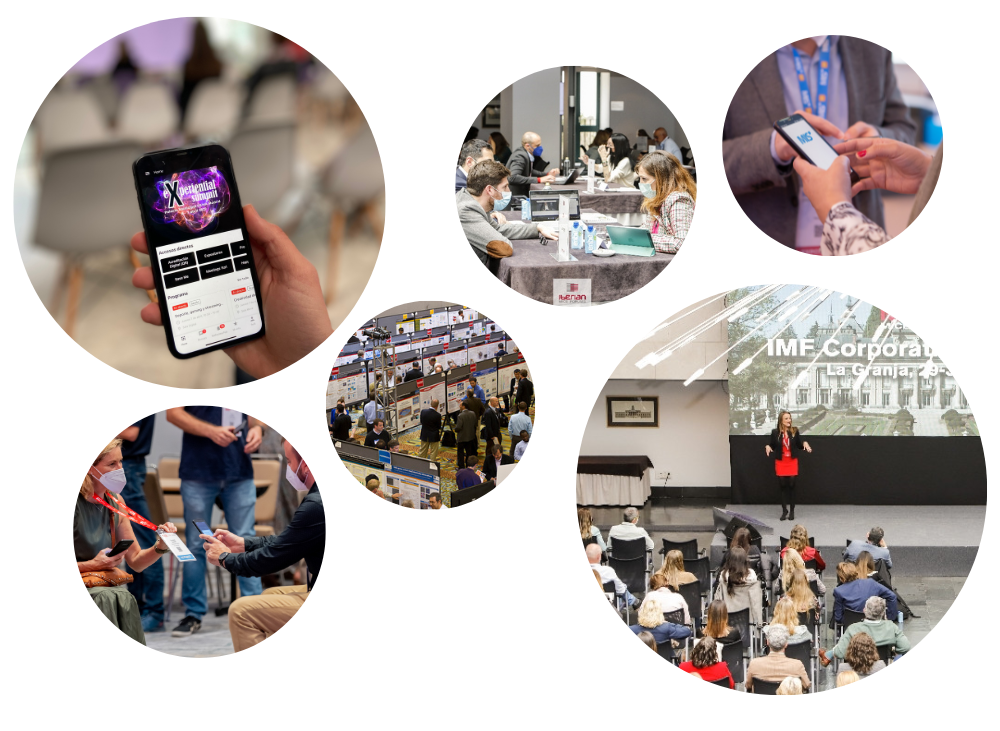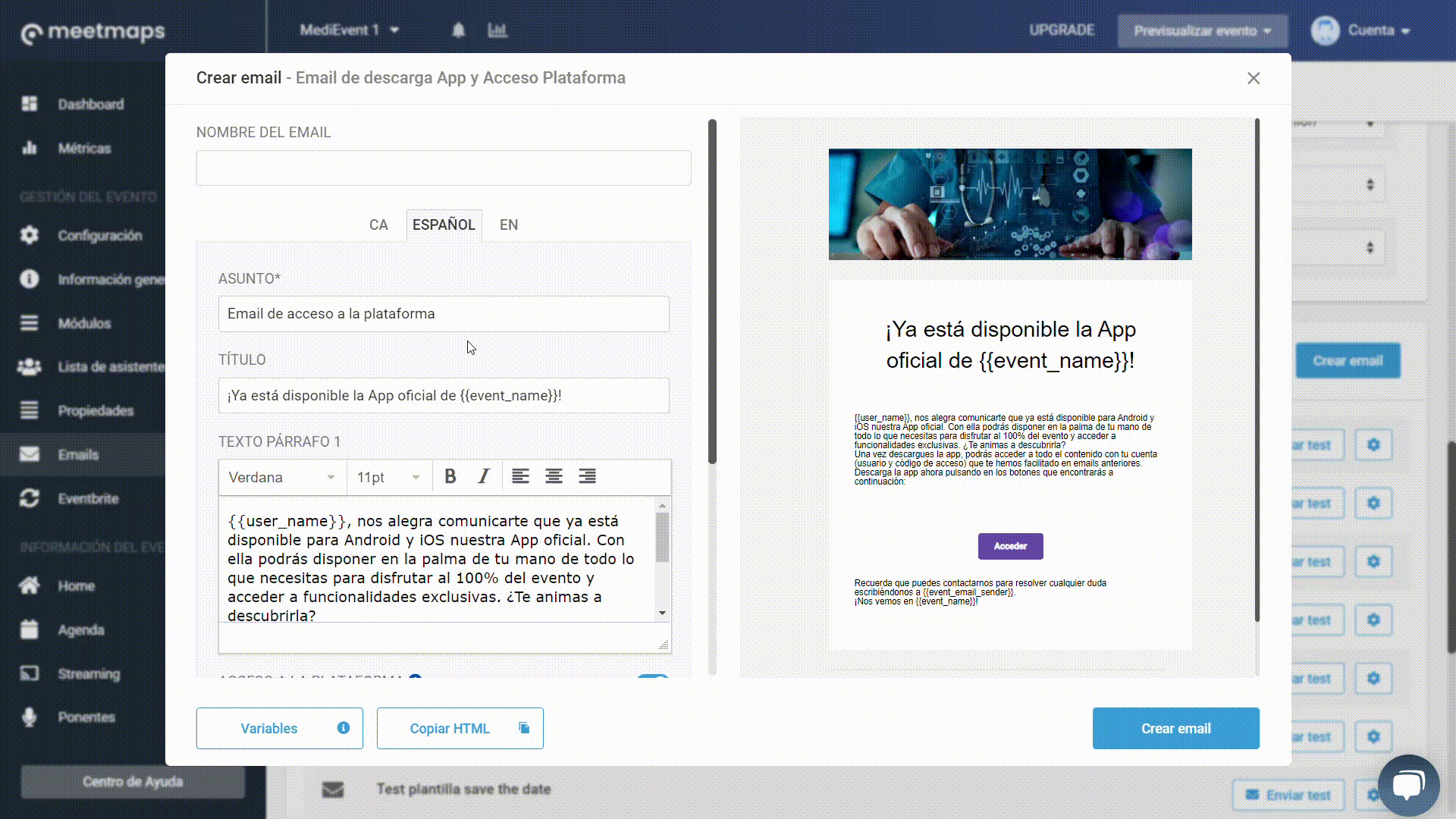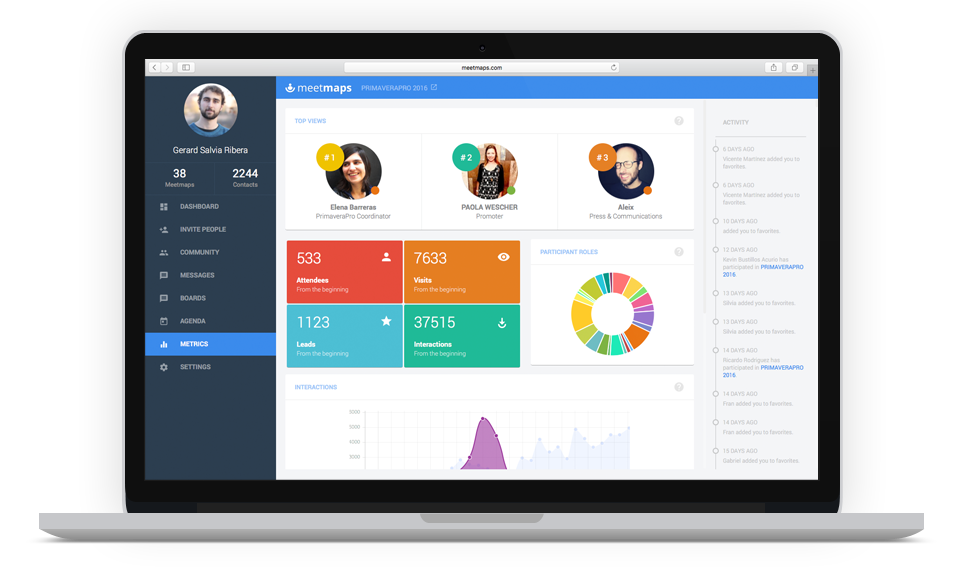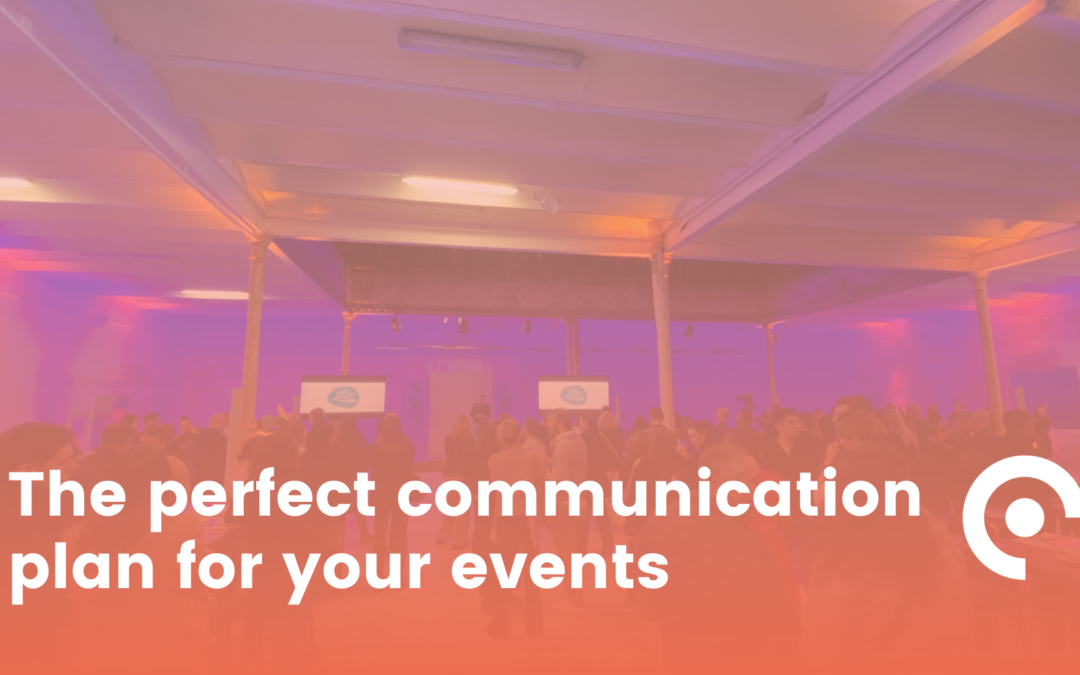Índice de contenidos
Organizing an event can be a complicated task, but it is even more difficult to ensure that the message reaches the right audience. The success of an event depends heavily on planning and executing an effective communications strategy. From pre-event promotion to post-event coverage, a solid communications strategy can ensure that your event is a success. In this article, we’ll share some tips for creating the perfect communication plan for your event. Have you realized that the communication plan plays a decisive role in event planning? Discover its full potential and start taking advantage of our tips. We all know that planning and event management always go hand in hand. That’s why we can’t imagine a single meeting that is not supported by the relevant media strategy. How else could it be known?
What is a communication plan?
The communication plan for an event is the roadmap that details the actions to be taken to inform your attendees, partners and suppliers. Thanks to it, the organizers can plan more effectively the way in which they will relate to the audience before, during and after the event.
We can classify this type of strategy according to its target audience (internal/external), its format (online/offline) or its message (formal/informal). In any case, the document is analytical, bidirectional, strategic, integrative and aligned with the essence of the event.
The communication and dissemination plan must be adapted to the objectives and target audience of the meeting in order to be successful. In addition, the document that contains it will establish which strategies will be developed throughout the event’s schedule (for example, e-mail marketing campaigns one month before the event takes place).

Why is it important to prepare a communication plan for your event?
Whatever the goals you intend to achieve with your events, the communication and dissemination plan is vital to achieve them. In fact, there are many benefits related to the planning of such strategies.
- Increase the visibility of the event and your own brand.
- Attracts a wider audience and boosts partner acquisition.
- Increases attendee satisfaction (which has a positive impact on the marketing of the event).
- Encourages attendee interaction.
- Reinforces the event’s image and corporate branding.
- Helps to express your needs correctly (for example, to suppliers).
- Saves money (planning allows you to invest resources more intelligently).
- Makes incident management more efficient.
Define your communication objectives
Before you start creating a communication strategy for your event, it’s important to be clear about the communication objectives you want to achieve. Are you trying to attract new customers or retain current ones? Do you want to generate awareness of your brand or products? Or do you simply want to create a positive experience for attendees?
Once you’ve established your communication objectives, it’s time to start thinking about how to reach them. How you plan and execute your communication strategy will depend largely on your objectives. For example, if you are trying to attract new customers, you may want to focus on event promotion and publicity. If you want to create a positive experience for attendees, you might focus on audience engagement and social media content creation.
Identify your audience
The next step in creating an effective communication strategy for your event is to identify your audience. Who are the people you want to reach – are they young, old, male, female, local or from out of town?
Once you have identified your audience, you need to think about how to communicate with them. What are the communication channels they use? How do they prefer to receive information? What kind of content are they interested in?
By answering these questions, you will be able to create a more effective communication plan and ensure that your message reaches the right audience.

Select your communication channels
After defining your objectives and audience, it’s time to select the right communication channels for your event. There are many different channels you can use, from print to digital media. By choosing the right communication channels, you will be able to maximize the impact of your message and reach your audience in the most effective way possible.
Here are some communication channels to consider for your event:
- Print media: While print media may seem old-fashioned, it is still an effective way to reach a targeted audience. You can use posters, flyers, newspapers or magazines to promote your event.
- Social media: Social media is a great way to reach a wider audience. You can use platforms such as Facebook, Instagram, Twitter and LinkedIn to promote your event and generate interest.
- Email: Email is an effective way to communicate with your current customers or subscribers.

Adjust the communication plan to each phase of the event
Of course, a communication plan does not consist of using all communication channels at all times. In order not to overwhelm the audience, it is best to use one channel at a time.
- Pre-event (e.g., website to inform about registration and ticket purchase).
- During the event (e.g. push up notifications in the app).
- Post-Event (e.g., an email to thank attendees and summarize what happened during the event).

Don’t miss the opportunity to reinforce branding
We have already seen that the media plan serves to reinforce the brand image. In order to make this possible, it is essential to customize the communication channels used with distinctive elements of the organizing company (e.g. logo and corporate colors).
Measure your media plan results
Everything is surmountable… and media plans are no exception. However, if you intend to refine your “technique”, you will have to measure the results obtained: only then will you be in a position to know what your weaknesses and strengths have been. Remember that the use of technology specifically designed for event planning will be of great help to carry out this task.

Don’t forget partners
When we talk about dissemination plans, we tend to forget that they also include sponsors. At the end of the day, promoting interaction between sponsors and attendees (e.g. through virtual exhibitors) will greatly facilitate the monetization of the event.
Exceed your clients’ expectations with the Event Management Software we have developed at Meetmaps. Our all-in-one platform puts at your service the most advanced functionalities to develop a winning communication plan (e-mail marketing, app and event website, etc.) Ask for your demo now!
Related blogs:
